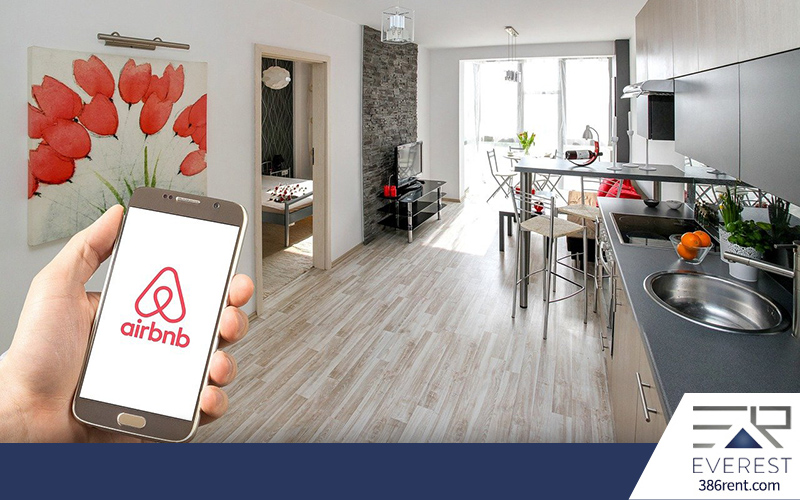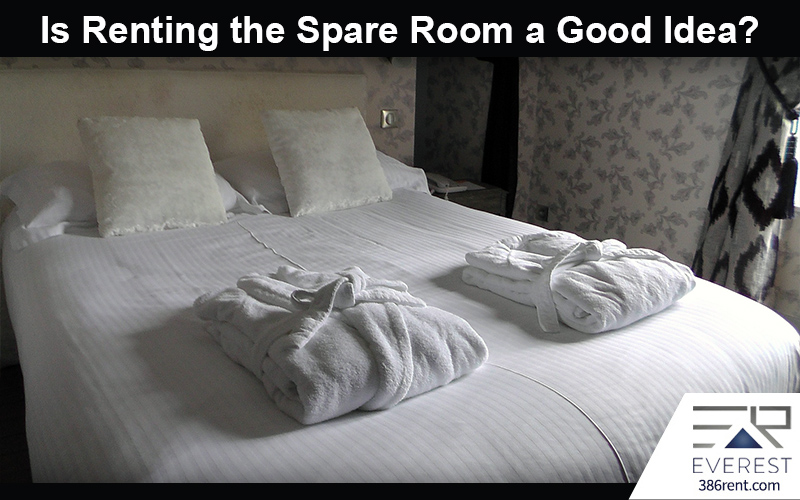Renting out the spare room in your house might seem like the perfect solution to earn a little extra money, but is it really? You have the room, you do not use it, so why not earn a few dollars from it. For landlords it is easy money, for individual renters it is cheaper than renting out a full unit. However, not everything is full of benefits; there are many cons to renting out a room in someone's house. Apart from the pros and cons, there are other things to consider as well, such as rules and regulations of the state when you are renting out a room in your house. Let us discuss how you can rent out the spare room in your home and if it is a good idea or not.
State Rules:
When you are brainstorming about renting out the spare room for good, you first need to start by checking out the rules and regulations of the state on landlord-tenant laws. Every state has a different set of rules, so make sure you know your state's rules before you get into the business of renting out the unit. The laws of renting out a separate room are very different than renting out a whole team, so ensure that you are aware of all the rules.
When you are thinking to rent out a single room in the house that you are living, there is a lot to consider. Does that spare room have a separate door? Has it got a bathroom? Access to the kitchen? All these are the key points that you will need to think through beforehand. All these key points are both for your comfort as well as the tenants'. Once you have all the rules and regulations sorted, you will also need to make sure that you screen your tenant properly and draw up iron-clad lease agreements, so there is no room for error.
Types of Lease Agreements:
Before renting out, sort out what kind of a lease you want, whether it will be a short-term or a long-term lease. You can rent out for weeks, months and even for a year-long lease. With a spare room to rent out, you can try short-term lease, and if you can handle it and if you are comfortable with it, you can easily extend the lease. Both short term and long term has its pros and cons; you need to decide which one is the better decision for you. Here's a breakdown of how these may work.
Short-Term Lease:

A short-term lease means no hassle or headache; you don't need to tolerate the tenant for an extended time. They come and go in quick succession. So, when you don't like a particular tenant, you won't have to tolerate them for long, and this is a considerable comfort. Most landlords who rent out for holiday seasons, or who rent our beach huts and shacks are familiar with this type of short-term leases. Short-term leases are extremely popular with travelers who are on their vacations or traveling for a certain project. Such people like to rent on short term leases; they look for small units or one-bedroom setups to avoid the hassle of hotels. Getting a short-term lease agreement through services like Airbnb, you can not only rent out, earn extra money but also checkout whether you want to be a full-time landlord or not.
However, with short-term, there is no guarantee of guests, so there is no consistent cash flow. To get a constant cash flow, you will need to make sure that as soon as the first guest leaves, you have the second ready to take its place. And in the real estate world, this is nothing but a dream unless your area is a very popular holiday destination. To get an ample number of guests, you will also need to keep your rental updates and spend hundreds on marketing and advertising.
Long-Term Leases:
A long-term lease is the exact opposite of short-term ones; it has both benefits as well as drawbacks. The benefit is that your tenant will stay put for a long time, you will have a consistent income, and you will be able to build a solid relation with your tenant. Such perks aren't there with short-term leases. However, you are renting the spare room and not a separate unit, your tenant will share your space for a longer period, and this can be overwhelming for some people, as not everyone is an ideal tenant. When a tenant settles in for a long-term lease, you will have to tolerate their friends coming over, them using your laundry room and kitchen more. Although, all these can be regulated through the lease agreement, but still there will be a hassle.
Once you have made up your mind about the kind of lease you are going to offer, you should also consider a few pros and cons of renting out the spare room.
The following are just some pros and cons; in a broader sense, there are many that you can only experience when you actually start to rent out.
Pros:
- If you are looking to step into the real estate market as a landlord, this can be an excellent opportunity to build your portfolio, apart from that the extra income will not go amiss either. Most people opt for such rentals for the extra money they can earn from the room that is just gathering dust. Apart from that, you can also apply for a tax deduction if you declare your home as a pass-through entity.
- You can also turn your spare room in a flexible, Airbnb setup. This means you only rent out when you feel like and stop when you don't. So, when you think you can't deal with guests, or when you have people over, you can halt your renting out process and renew it when you are good to go.
Cons:
- Tenants bring money, but they also cost money. You will have to pay for the utility, rental tax as well as repairs and maintenance.
- The lease agreement is a binding contract, so you cannot break is as per your convenience, and you will have to uphold any promise you make.
All in all, if you want to try out being the landlord, we suggest you take the short-term route, so that you can go back to your old life whenever you want.
If you’d like to talk more about property management, or you need help with Everest Property Management, please contact us at Everest Realty.




 As a top producing Realtor and Property Manager; Terry specializes in sales, extensive construction homes, rentals, REO’s, short sales, and all aspects of Real Estate. After graduating the University of Michigan with a master in MBA, Terry continued his endeavor and now has over 15+ years of experience in the Real Estate world. If there is anything that has to do with Real Estate and sales, you can always be sure of Terry to provide important, specialized knowledge.
As a top producing Realtor and Property Manager; Terry specializes in sales, extensive construction homes, rentals, REO’s, short sales, and all aspects of Real Estate. After graduating the University of Michigan with a master in MBA, Terry continued his endeavor and now has over 15+ years of experience in the Real Estate world. If there is anything that has to do with Real Estate and sales, you can always be sure of Terry to provide important, specialized knowledge.




